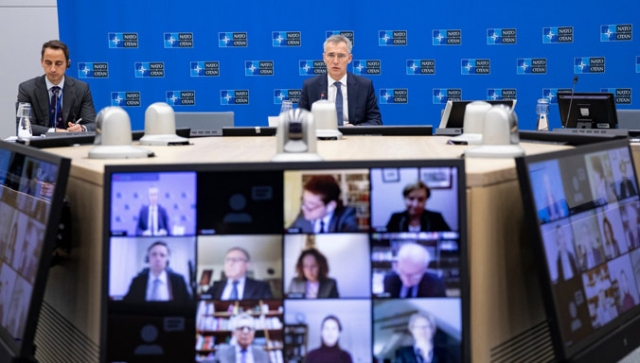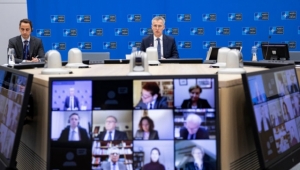Experts: NATO should Seek to Strengthen Partnerships with Ukraine, Georgia
"NATO should seek to expand and strengthen partnerships with Ukraine and Georgia as vulnerable democracies that seek membership and are under constant external and internal pressure from Russia," notes the document prepared by a group of experts appointed by the Secretary General of NATO: "NATO 2030: United for a New Era, Analysis and Recommendations."
"The Russian government seeks hegemony over its former Soviet possessions and undermines their sovereignty and territorial integrity, seeking to block the path of nations that want to move toward NATO. While Russian aggression in Ukraine and Georgia continues, assertive Russian behavior has intensified in the High North and North Atlantic, with air and naval build ups in and around key maritime chokepoints in the Barents, Baltic, and Black seas, and the Mediterranean. In the last three of these, Russia has placed anti-access/area-denial (A2AD) capabilities, expanded hybrid warfare, and threatened energy and critical infrastructure. In parallel, it has attempted to create satellite or client states near NATO territory, including so-called frozen conflicts, and violated arms-control regimes leading to the end of the INF Treaty. Russia has also been trying to establish a foothold in the Mediterranean basin and in Africa, including by using proxies and Russian private military companies. In addition to its conventional military threat, Russia is deploying a broader hybrid toolkit including offensive cyber, state-sanctioned assassinations, and poisonings – using chemical weapons, political coercion, and other methods to violate the sovereignty of Allies.
"NATO should expand and strengthen partnerships with Ukraine and Georgia, seek to heighten engagement with Bosnia and Herzegovina, and counter destabilization across the Western Balkans," reads the document.
NATO Secretary General Jens Stoltenberg appointed a group of independent experts in April 2020. The experts presented the document, which includes analysis and recommendations, to the Secretary General on November 25, and to the NATO Foreign Ministers yesterday.
The group was composed of Greta Bossenmaier (Canada), Anja Dalgaard-Nielsen (Denmark), Hubert Védrine (France), Thomas de Maizière (Germany), Marta Dassù (Italy), Herna Verhagen (The Netherlands), Anna Fotyga (Poland), Tacan Ildem (Turkey), John Bew (United Kingdom) and Wess Mitchell (United States).
By Ana Dumbadze
See the full report here












